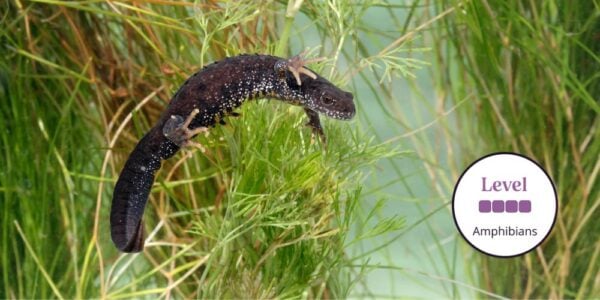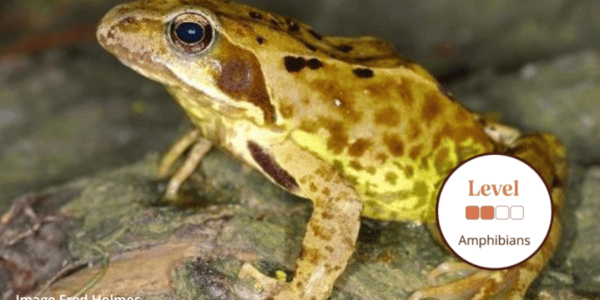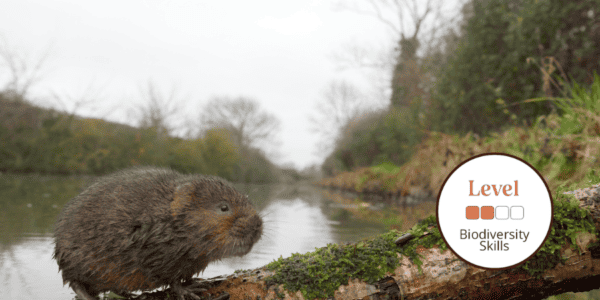This introductory online course will introduce you to the key characteristics of reptiles, and will then look more in-depth into the identification and ecology of UK species.
Reptiles are secretive animals that can be incredibly hard to spot. Learn more about the several species of reptiles the UK is home to, that you may be lucky to find. Being able to identify species and make site adjustments for reptiles is a critical skill for anyone looking at working within a consultancy career.
This course will cover:
- Introduction to Reptiles
- UK Reptile Identification
- UK Reptile Ecology


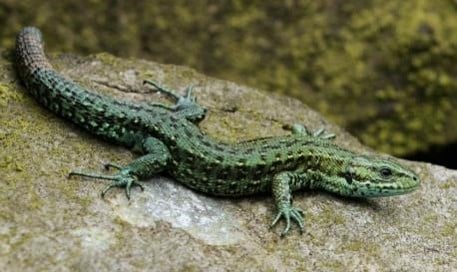
Read More
This introductory course is a great introduction for anyone with an interest in herpetofauna and for those looking at taking their first steps into an ecology career. All content has been created by the Amphibian and Reptile Conservation Trust (ARC), so you can be confident that you are getting information from leading experts working within this field. By the end of the course, you will be able to identify common UK species as well as non-native, explain their basic ecology and also have a basic understanding of key mitigations needed when working in an area of interest for reptiles.
This is a 3-week online course covering 3 topics, for which you will complete a variety of self-led online study content, activities, assignments and live Zoom sessions. Time commitment is approximately 2-3 hours a week and an E-certificate is provided upon completion.
By the end of the course, you will be able to:
- Explain Reptile taxonomy, anatomy, and main ID features and how they differ from other animals
- Identify UK Reptile species
- Describe the different habitats, ranges and life cycles of UK reptiles
- Identify reasonable adjustments that need to be taken to protect reptiles
- Share this knowledge with friends, family, and fellow volunteers
Who Should Attend? – Nature enthusiasts, Students, Rangers, Early career ecologists.
Knowledge Level – Introductory. Level descriptors can be found on the following webpage: Framework and Course Level Descriptors
Prior Knowledge – No existing knowledge, or experience is needed for this course. Just a willingness to explore and learn.
Please note that bookings will close at 2 working days before the course start date to allow for all participants to be enrolled to the online platform – bookings will not be taken after this time. Bookings will close sooner if course capacity is reached
Understand how our online courses are delivered
Live Webinar Information
There are 3 webinars for this course, taking place at the end of each week. Please see the date listing below for the day and time.
Please note – webinars will be recorded and uploaded to the virtual learning platform for learners unable to attend.
About the Tutor
Dr Rob Ward
Dr Rob Ward is a conservation biologist who has been working with amphibians and reptiles for 15 years and completed his PhD on the ecology and conservation of grass snakes. He is currently the Data and GIS Officer for the Amphibian and Reptile Conservation Trust (ARC) where his work includes developing reptile and amphibian monitoring programmes and managing the organisation’s data and mapping.
Example Timetable
Week 1: Introduction to Reptiles
Self-study material available from start date
Week 1 live webinar at end of week 1
Week 2: UK Reptile Identification
Self-study material available after week 1 webinar
Week 2 live webinar at end of week 2
Week 3: UK Reptile Ecology
Self-study material available after week 2 webinar
Week 3 Marked assignment due at end of week 3
The final deadline to complete any outstanding activities and self-study components is 2 weeks after the assigment date
Time commitment: This course will require approximately 2-3 hours of your time each week. This includes covering course materials on our Moodle learning platform and the Zoom session.
What's Included
The course has been carefully created to help you continue to build on your knowledge as the course progresses. With content crafted to the online Moodle Platform and bespoke to the Field Studies Council.
The course includes:
- 45-minute interactive Zoom workshops to connect with the tutor and other participants
- Personalised feedback on a marked assignment
- Expert tuition for which the Field Studies Council is renowned
- Activities to work on independently in advance of each Zoom workshop
Once registered, you will follow well-illustrated, user-friendly ’books’ to pick up knowledge. Quizzes and skill-checks will give you instant feedback on your learning. Forums give students the chance to interact with each other as well as a place to share work.
Bursaries and Subsidies
Student Discount
This course is eligible for a student discount. If you are a current student, please use discount code BioStudent20 at checkout for 20% off all Biodiversity courses.
Before You Attend
Accessing Your Course
- Once you sign up you’ll receive an email at least 24 hours in advance of the course opening with details of how to access our easy-to-use platform, Moodle.
- Moodle can be accessed through a browser or an app.
- Webinars are via Zoom so you won’t need any new software to attend
Recommended Devices
It is recommended that you access your course through a PC or laptop. Please be aware that there will be reduced functionality if you decide to access the course through a tablet or smartphone. The Field Studies Council is unable to email content directly to you.
Opportunities to attend this course
-
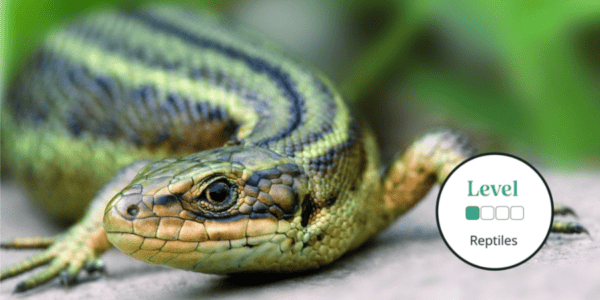
Tue 11, June 2024 - Tue 16, July 2024
The webinars will take place on Tuesdays 11:30 am – 12:15 pm on the following dates:
- Week 1: 18th June 2024
- Week 2: 25th June 2024
- Assignment Due: 2nd July 2024
No current dates for this course? Click here to view all the upcoming Natural History courses.
Progress Your Learning
This is a training course from the Field Studies Council, delivered by expert tutors with an approachable learning style. After attending this course, you may like to progress your learning with further relevant courses or branch out into other areas of natural history. The Field Studies Council offers both online and in person courses, so you can choose the learning style that suits you best.
The course gives you the opportunity to immerse yourself in a new subject and acquire novel skills. Our online portal gives you time to study at your own pace and fit the lessons around your own schedule.
If you have any questions about our online courses please check our Frequently Asked Questions
Please email [email protected] if you have any questions.
Group Bookings Made Easy
If you have a group of 10 or more individuals wanting to complete one of our courses, our team are available to discuss your options – from discounts to private team courses. Find out more!
You can rest assured that the absolute best content from an expert in environmental education will be at your fingertips. In choosing a Field Studies Council course, you will be joining thousands of people who learn with us each year.

